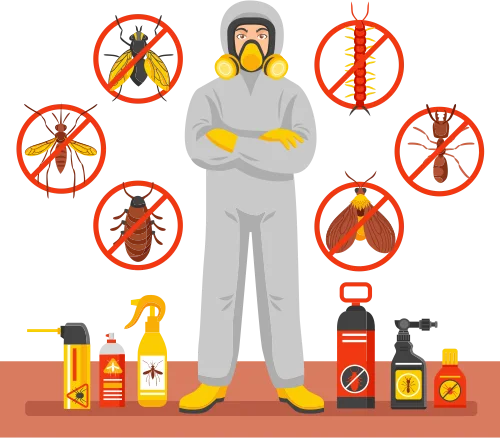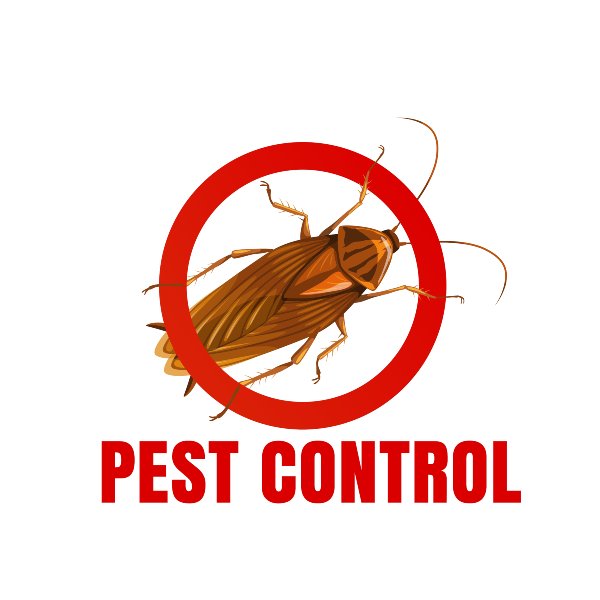Professional Wasp Control Coquitlam: Safe and Efficient Pest Removal
Safe and Reputable Pest Control for Lasting Security
Effective insect administration requires a complex approach that balances ecological integrity with the requirement for efficient parasite suppression. The nuances of these methods might not be instantly clear, prompting a better exam of the techniques that can lead to sustainable insect control outcomes.
Recognizing Pest Control Approaches
Parasite control incorporates a range of techniques focused on managing and eliminating unwanted bugs and rats that can intimidate both health and wellness and property. Comprehending these methods is crucial for efficient insect management.
The main categories of insect control methods include mechanical, biological, and chemical techniques. Mechanical methods entail physical obstacles and traps to avoid insect access and capture unwanted types. Using screens on windows or employing sticky catches can substantially lower pest populaces without introducing harmful materials - exterminator coquitlam.

Chemical insect control is commonly one of the most identified technique, utilizing chemicals to eliminate parasites. These chemicals can be reliable but must be utilized with caution to stay clear of adverse effects on non-target species and the setting.
Benefits of Eco-Friendly Solutions
Just how can green solutions change parasite control methods? The adoption of environmentally friendly pest control methods offers numerous advantages, significantly boosting the efficiency and safety and security of bug management (exterminator coquitlam). Firstly, these options utilize all-natural components, decreasing the reliance on unsafe chemicals that can position threats to human health and wellness and the environment. This change not just safeguards families and pet dogs however likewise minimizes the possibility for dirt and water contamination.

Another advantage is the favorable effect on local biodiversity. Environment-friendly solutions are made to target particular bugs while maintaining advantageous bugs and wild animals, advertising a balanced environment. This strategy aligns with the growing consumer demand for lasting techniques, improving the track record of parasite control suppliers.
Integrated Pest Monitoring Approaches
The execution of eco-friendly solutions naturally results in the adoption of Integrated Insect Management (IPM) approaches, which further enhance insect control efficacy. IPM is a holistic method that combines several strategies to handle insect populations while reducing environmental impact. This strategy emphasizes the use of organic, social, mechanical, and chemical controls, making sure a sustainable and balanced technique of pest administration.
One fundamental aspect of IPM is the comprehensive analysis of bug activity and ecological problems. By keeping track of insect populaces and determining their life process, practitioners can apply targeted interventions that interfere with the parasite's environment or lifecycle, decreasing reliance on chemical pesticides. In addition, social practices such as plant turning and habitat manipulation can dramatically reduce insect facility and reproduction.
One more critical part is the use of biological control representatives, such as advantageous pests or bacteria, which can normally suppress insect populaces. When chemical applications are needed, IPM prioritizes the use of low-risk click for source chemicals and applies them precisely, minimizing direct exposure to non-target organisms and humans.
Including IPM approaches not just boosts parasite control efficiency but additionally promotes a more secure environment, aligning with the growing need for sustainable techniques in insect monitoring.
Safe Practices for Home Owners
Comprehending the relevance of safe practices in pest control can equip homeowners to efficiently take care of pest problems while safeguarding their health and the setting. Carrying out safe approaches and preventive steps is essential in reducing exposure to hazardous chemicals.
House owners need to first analyze their setting for problems that attract insects, such as standing mess, food, and water waste. On a regular basis cleaning and securing entrance factors can prevent parasites from attacking the home. Making use of all-natural deterrents, such as necessary oils or diatomaceous planet, can provide reliable choices to chemical pesticides.
When chemical treatments are essential, home owners must opt for items that are particularly labeled as risk-free for household usage. It is important to follow application standards meticulously to prevent overexposure. Using targeted therapies in areas where pests are determined, instead than blanket splashing, use this link can substantially decrease chemical use.
Lastly, maintaining open communication with bug control experts is vital. Homeowners should ask about the safety of items made use of and demand environment-friendly options whenever possible. By taking on these safe techniques, property owners can develop a healthier living setting while successfully handling insect issues.

Tips for Long-Term Defense
Establishing an insect monitoring technique that stresses long-term security can substantially enhance the efficiency of the risk-free techniques previously talked about. To attain this, homeowners ought to carry out normal examinations of their home, concentrating on concealed locations such as attic rooms, basements, and crawl spaces. Early detection of insect activity is vital in protecting against invasions from holding.
These techniques lower attractants that attract insects right into the home. Securing entry points, such as fractures around doors and home windows, can properly obstruct potential pest accessibility.
Landscaping must likewise be considered; keeping plants cut and preserving a range between plants and the home reduces hiding places for parasites. Using natural deterrents, such as essential oils or diatomaceous planet, can even more discourage infestations without resorting to harsh chemicals.
Finally, collaborating with a specialist bug control solution for routine examinations can provide an additional layer of protection. These professionals can supply tailored referrals and advanced therapies, ensuring that your home remains secured against insects in the long-term.
Final Thought
To conclude, trusted and secure pest control needs a complex approach that stresses eco-friendly techniques and incorporated insect administration. By implementing all-natural deterrents, performing normal assessments, and keeping proper cleanliness, homeowner can substantially lower parasite populations while safeguarding advantageous pests and the setting. Cooperation with professional pest control services improves the efficiency of these approaches, pest technician ensuring tailored remedies that give lasting security and assurance versus future problems.
Reliable parasite management requires a diverse method that balances environmental stability with the requirement for reliable insect suppression. The fostering of environment-friendly insect control techniques uses various benefits, significantly enhancing the performance and safety of bug monitoring.The execution of environment-friendly solutions normally leads to the adoption of Integrated Bug Management (IPM) approaches, which further improve bug control efficiency. exterminator coquitlam. By monitoring bug populations and identifying their life cycles, practitioners can implement targeted interventions that interfere with the insect's habitat or lifecycle, decreasing reliance on chemical pesticides.In conclusion, dependable and safe pest control calls for a diverse method that highlights environmentally friendly techniques and incorporated pest management